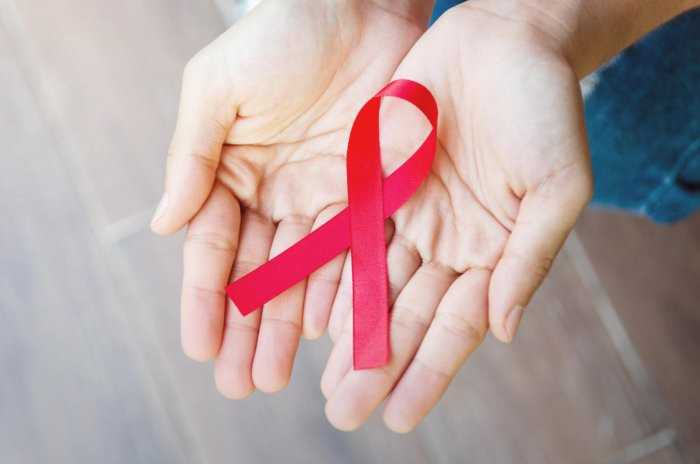Recently the African Union held a high level session on addressing substance use and related mental health disorders among youth, women and children. The number of people who use drugs on the continent has risen exponentially with a corresponding increase in the number of people with drug use disorders and comorbidities including young people. This is a result of growing market for drugs including those produced locally, in addition to Africa being a major transit area for trafficked drugs of which significant amount remains on the local market. A total of 60 million individuals representing 8.4% of the population aged 15 to 64 years were estimated to have used illicit drugs in Africa in 2018 by the World Drug Report. As a result of its projected population growth, Africa is likely to be particularly vulnerable to an increase in the number of people who use drugs by 2030. The estimated drug use prevalence is projected to increase by 40% in 2030 due to the exponential demographic factors experienced by the continent.
This threatens the health, socio-economic wellbeing and security of people on the continent and impedes continental transformation espoused in AU Agenda 2063 – the Africa We Want. The challenge transcends all the five geographical regions of Africa (Central, East, North, West and South) with an increasing number of countries experiencing a melt-down and unable to cope with the high demand for treatment of drug dependency, a multi-factorial health disorder that affects the brain and causes the course of a chronic, relapsing disease.
Read Also:
Cardi B Breaks Down in Tears She Slams Ex Offset for ‘Doing Her Dirty’ in Rant (video)
Ukrainian Village Politician Detonates Grenade During Council Meeting (video)
Determined to address the problem with long-term strategic interventions, the 4th Ordinary Session of the AU Specialised Technical Committee on Health, Population and Drug Control, in June 2022 adopted the Cairo Declaration on addressing drug use and SUDs among youth, children and women. Through the declaration, African Ministers of Health, population and drug control called for an urgent summit/high level session dedicated towards addressing drug use and its health-related consequences among especially youth, children and women for the continent to harness the demographic dividend.
However, despite these policies on drug abuse, there continues to be widespread abuse of certain substances in certain regions of Africa. Here is an overview of 10 most abused substances in various parts of the continent:
1. Cannabis: Cannabis is one of the most widely abused substances in Africa, with a long history of recreational use. Its cultivation and consumption are prevalent in many regions, and the plant’s psychoactive properties make it a popular choice for both medicinal and recreational purposes. The legality of cannabis varies across the continent, with some countries adopting more permissive stances, while others maintain strict regulations. The prevalence of cannabis abuse underscores the need for nuanced policies that balance public health concerns with the cultural and medicinal significance of the plant.
2. Tobacco: Smoking tobacco is a pervasive form of substance use in Africa, contributing to a significant public health challenge. While tobacco is not classified as a drug in the traditional sense, its abuse is associated with various health issues, including respiratory diseases and cardiovascular problems. The tobacco industry’s marketing strategies, coupled with a lack of comprehensive anti-smoking measures, contribute to the high prevalence of tobacco use. Efforts to address tobacco abuse in Africa often involve a combination of regulatory measures, public awareness campaigns, and healthcare initiatives to reduce the health impact of smoking.
3. Alcohol: Alcohol abuse is widespread across Africa, presenting challenges related to excessive drinking and its repercussions on both health and social well-being. Cultural factors, economic conditions, and lax regulatory environments contribute to the high rates of alcohol consumption. Excessive alcohol use is associated with a range of health issues, including liver diseases, accidents, and social problems such as violence and family disruption. Public health campaigns, regulatory measures, and community-based interventions are crucial components of efforts to mitigate the negative consequences of alcohol abuse.
4. Khat (Catha edulis): Khat, a stimulant plant native to East Africa, is chewed for its stimulant effects. While it is legal in some countries, others have banned its use due to concerns about its impact on health. Khat chewing is deeply rooted in certain cultural practices, and debates about its legalization often involve considerations of tradition, public health, and social consequences. The stimulant properties of khat can lead to increased energy and alertness but may also contribute to health issues such as cardiovascular problems. Managing the use of khat requires a balanced approach that respects cultural traditions while addressing potential health risks.
5. Prescription Drugs: The misuse of prescription medications, particularly opioid painkillers and benzodiazepines, is a growing concern in some African countries. Access to these medications, coupled with inadequate regulation and monitoring, contributes to their misuse. Opioid abuse, in particular, poses significant health risks, including addiction and overdose. Addressing prescription drug abuse requires a multifaceted approach, including improved regulation of pharmaceuticals, enhanced prescription monitoring programs, and increased awareness among healthcare professionals and the public.
6. Heroin: While heroin abuse is not as widespread in Africa as in some other regions, pockets of addiction exist, often linked to drug trafficking routes. Heroin abuse poses serious health risks, including the potential for overdose and the transmission of infectious diseases through shared needles. Efforts to combat heroin abuse involve law enforcement measures to disrupt trafficking networks, as well as public health interventions such as addiction treatment and harm reduction programs.
7. Cocaine: Cocaine abuse is relatively less common compared to other substances in Africa but is present in some urban areas, often associated with higher socioeconomic groups. The stimulant properties of cocaine can lead to addiction and various health issues. Efforts to address cocaine abuse involve a combination of law enforcement initiatives, public awareness campaigns, and addiction treatment programs.
8. Methamphetamine: Methamphetamine abuse has been reported in various African countries especially Nigeria, with concerns about its impact on public health. The stimulant properties of methamphetamine can lead to addiction, mental health issues, and cardiovascular problems. Addressing methamphetamine abuse requires a comprehensive approach, including regulation of precursor chemicals, law enforcement efforts, and treatment options for individuals struggling with addiction.
9. Solvents and Inhalants: The abuse of solvents and inhalants, such as glue and gasoline, is a problem in some areas of Africa, particularly among vulnerable populations like street children. Inhalant abuse can lead to serious health consequences, including neurological damage and respiratory issues. Addressing this issue requires a combination of outreach programs, education on the dangers of inhalant abuse, and support services for at-risk populations.
10. Ecstasy (MDMA): In certain urban settings and among specific subcultures, the recreational use of ecstasy (MDMA) has been reported. Ecstasy is a synthetic drug with stimulant and hallucinogenic properties. Its use is associated with potential health risks, including dehydration, hyperthermia, and adverse psychological effects. Efforts to address ecstasy abuse involve public awareness campaigns, regulatory measures, and support services for individuals struggling with substance abuse.
Understanding the complexities of substance abuse in Africa is essential for developing targeted interventions that consider cultural, economic, and social factors. Efforts to address these issues should involve collaboration between governments, healthcare professionals, communities, and international organizations to create comprehensive and culturally sensitive strategies.
Source: https://medssafety.com/10-most-abused-drugs-in-africa/





